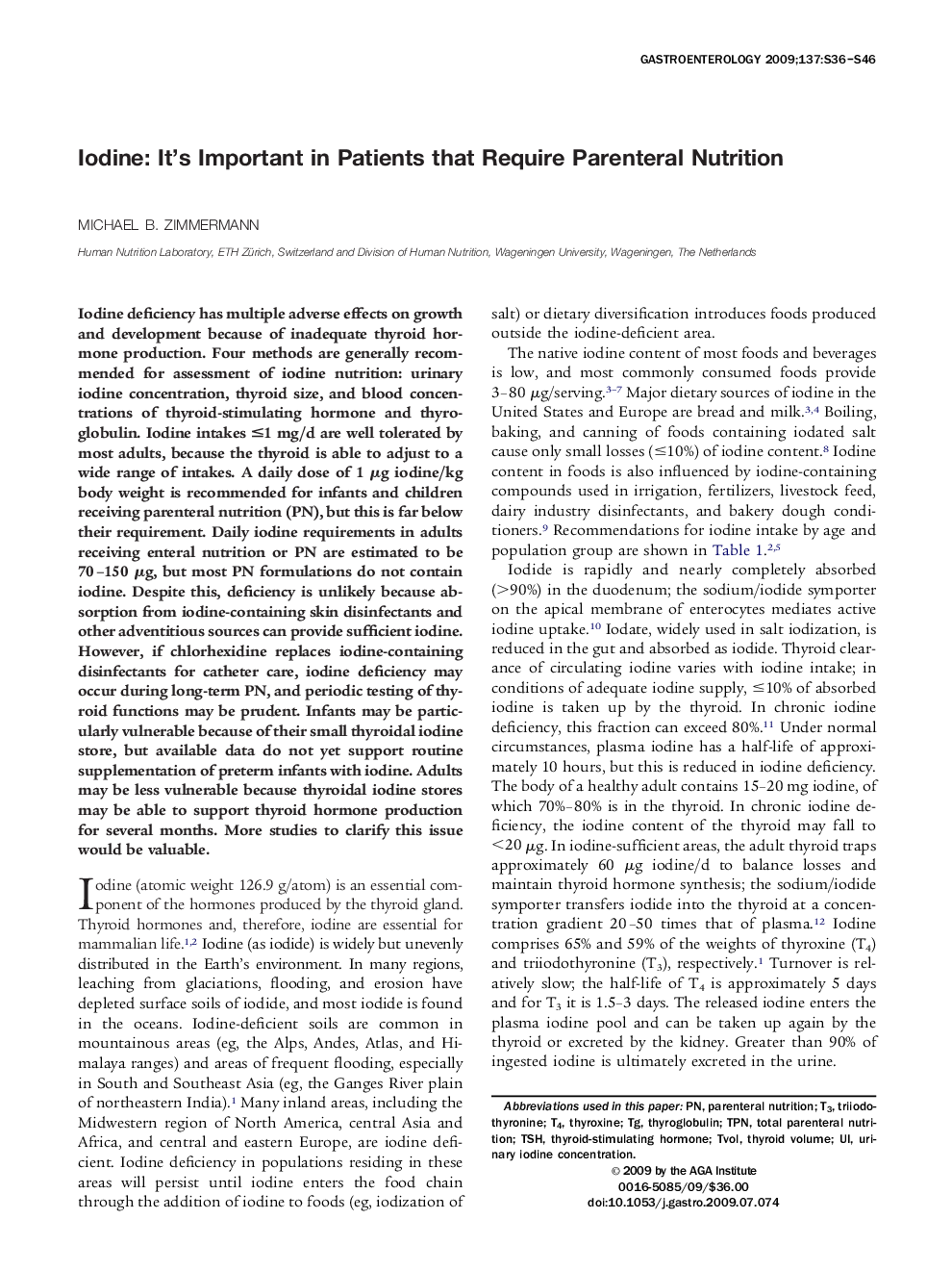| کد مقاله | کد نشریه | سال انتشار | مقاله انگلیسی | نسخه تمام متن |
|---|---|---|---|---|
| 3298574 | 1209907 | 2009 | 11 صفحه PDF | دانلود رایگان |

Iodine deficiency has multiple adverse effects on growth and development because of inadequate thyroid hormone production. Four methods are generally recommended for assessment of iodine nutrition: urinary iodine concentration, thyroid size, and blood concentrations of thyroid-stimulating hormone and thyroglobulin. Iodine intakes ≤1 mg/d are well tolerated by most adults, because the thyroid is able to adjust to a wide range of intakes. A daily dose of 1 μg iodine/kg body weight is recommended for infants and children receiving parenteral nutrition (PN), but this is far below their requirement. Daily iodine requirements in adults receiving enteral nutrition or PN are estimated to be 70–150 μg, but most PN formulations do not contain iodine. Despite this, deficiency is unlikely because absorption from iodine-containing skin disinfectants and other adventitious sources can provide sufficient iodine. However, if chlorhexidine replaces iodine-containing disinfectants for catheter care, iodine deficiency may occur during long-term PN, and periodic testing of thyroid functions may be prudent. Infants may be particularly vulnerable because of their small thyroidal iodine store, but available data do not yet support routine supplementation of preterm infants with iodine. Adults may be less vulnerable because thyroidal iodine stores may be able to support thyroid hormone production for several months. More studies to clarify this issue would be valuable.
Journal: Gastroenterology - Volume 137, Issue 5, Supplement, November 2009, Pages S36–S46